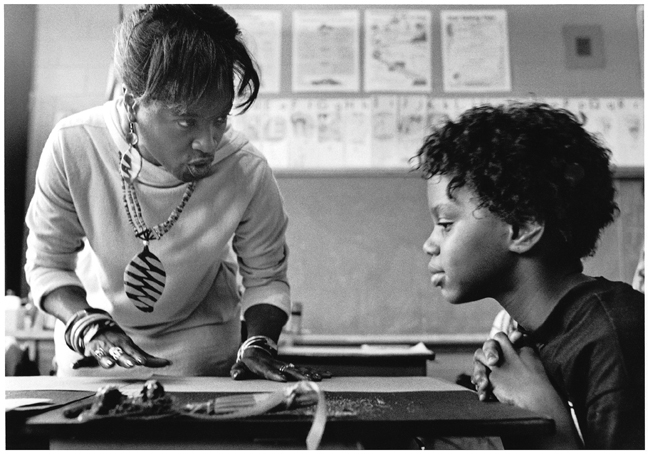
It's a sad, but possibly healthy, state of affairs the U.S. has gotten itself into regarding public education. There are the perennially huge and difficult issues regarding funding and effectiveness, but now the reactionary right is insisting we consider public education, as a collective endeavor, immoral. That charge is not new. In one form or another it has been with us since colonial times. Many colonialists journeyed to these shores seeking freedom to live life according to belief, absolutely free from the dictates of government. Ironically, groups of those same individuals soon banded together into communities that often imposed extremely harsh and punitive governmental control over member citizens who did not conform to doctrinally sanctioned thought and action. That same ironic irrationality continues today, spearheaded by such neoFascist groups as Focus on the Family. They point to public education and accuse it of being coercive indoctrination into a system of beliefs they adamantly oppose. Their championed alternatives are Christian religious schools and home schooling. Democracy, as framed by the U.S. founders, was an attempt to balance interests of individuals with interests of the collective. The government they designed was not unitary in nature, but one of partition wherein the various parts act as check and balance relative to each other so that no one part can ever overpower all others to establish unitary central control. That compromise is neither pretty nor exceptionally efficient. But on the whole it has for some 233 years more or less accomplished its purpose. Still, comfortable equilibrium has seldom been established. Individuals and special interests continue to claw toward overarching dominance. The rest of us are sometimes left feeling in a war zone of clashing interests, ideas, and allegiance. Prompted by Obama's speech to school children and the accompanying uproar fostered by Focus on the Family, one might well ask: what role should education play within the functioning of our democracy? Language and reasoned discussion are essential to the functioning of democracy. Education that is equally accessible for all citizens can both establish a common language, by which citizens can equitably communicate and conduct commerce, as well as help cultivate intellectual skills needed to learn, keep track of, assess, discuss, plan for, and adapt to the ever widening stream of developing knowledge global societies produce. That's what education can do. That's what democracy needs in order to function. There is certainly reason to conclude public education isn't totally succeeding in that job with optimum equity and efficiency, nor does every student walk away enthralled with their experience, but is the job itself arrogantly immoral? Would the world be better off if humans disassociated from each other, splintered off into disparate language groups, and once again violently vied for tribal dominance over geographic regions? Would that really be the more moral choice? |
• Posted: Sep 08, 2009 20:41:37
• Comments Welcome
• Vote CoolPhotoblogs
• Purchase a Print
• Share
Wednesday, November 21st, 1990 Chicago IL USA |